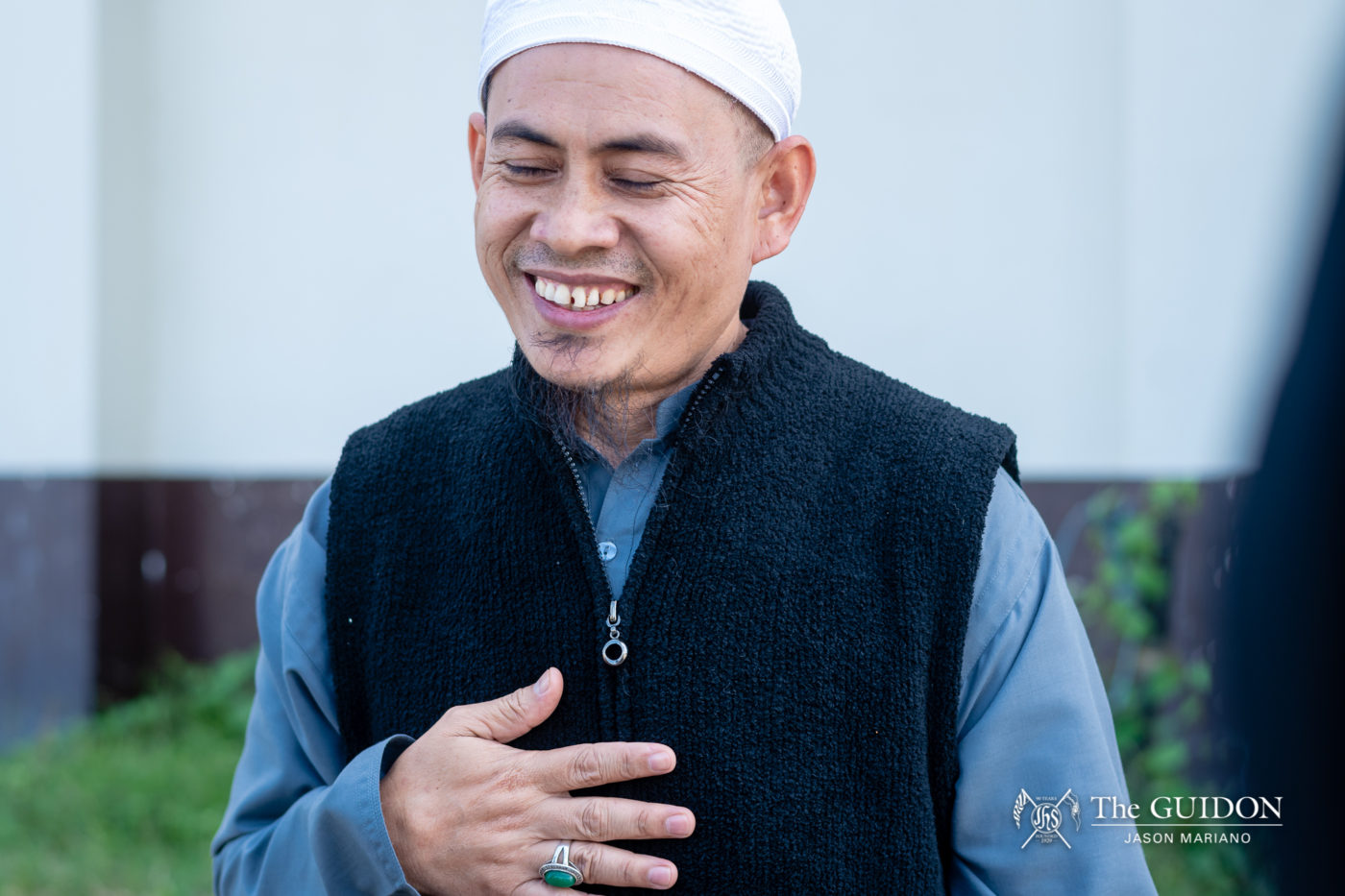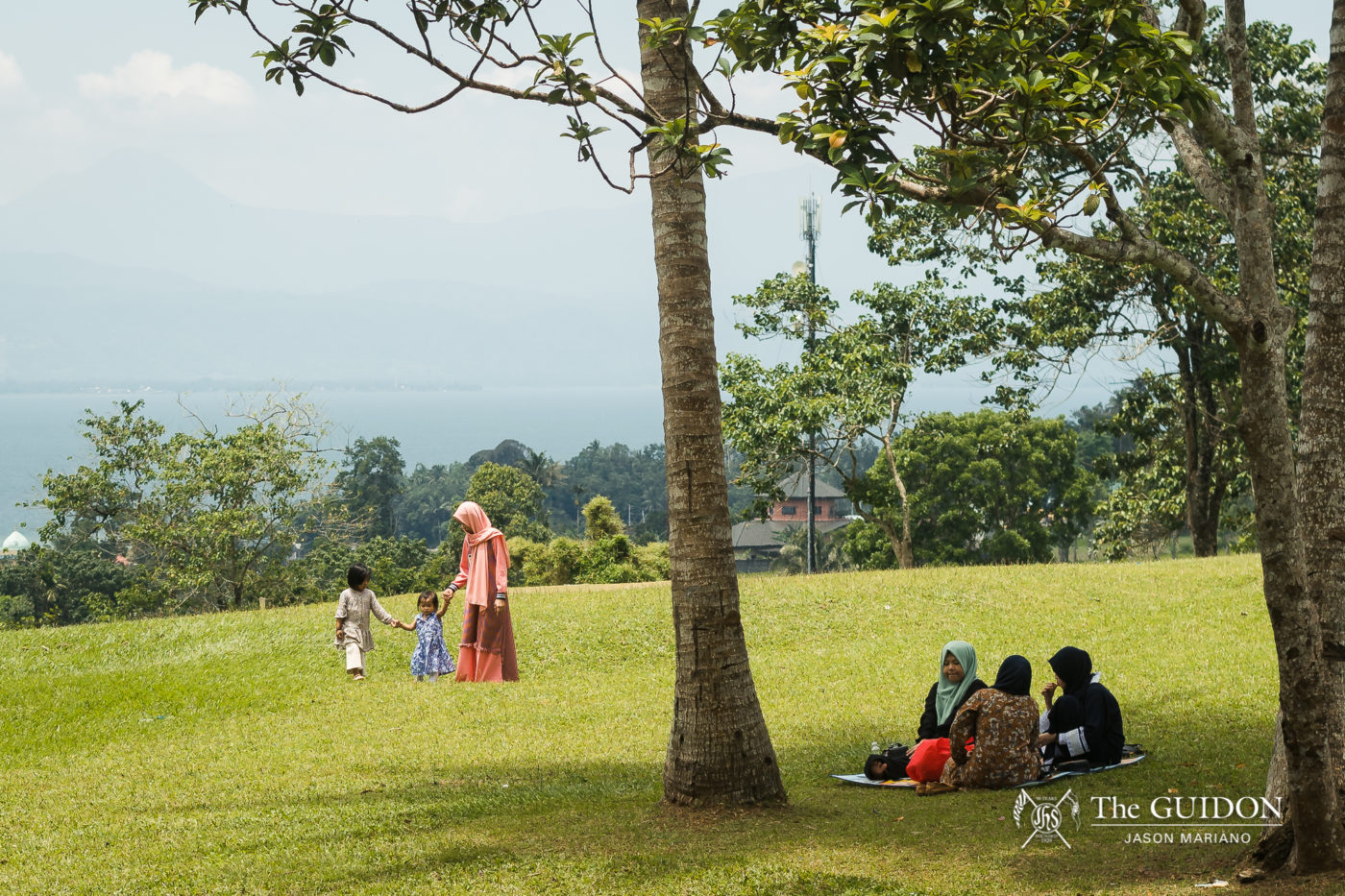AMONG MOUNTAINS of crushed cement, tangles of overgrown vines, and scatterings of misshapen steel, a silver crescent sits atop the rubble as it furiously glints under the harsh rays of the Mindanao sun.

It has been two years since the siege that devastated Marawi City. What started out as an Armed Forces of the Philippines (AFP) mission to detain Abu Sayyaf subleader and Maute Group member Isnilon Hapilon led to a five-month battle that displaced nearly 300,000 Maranaos and even residents from nearby municipalities.
But for the Maute Group, the destruction that ensued wasn’t just about protecting the interests of one man—it was also a war for and about religion. Numerous reports have said that the Maute Group targeted not only the AFP, but the Christian population in Marawi as well. Christians who refused to convert to Islam were reportedly beheaded, a Catholic church was burnt to the ground, and a priest and several Christians who worshipped with him were held hostage for the entirety of the siege.
Perhaps without meaning to, these stories have further reinforced the misguided notion of Muslim-Christian hostility in the Philippines. In reality, the Maute Group’s acts of violence, which they claim to have done allahu akbar, or in the name of God, also severely hurt their fellow Muslims. Not only were mosques used as battlefields, ancestral homes destroyed, and many killed as casualties of the war, but the siege also added to the already difficult challenge of deconstructing the anti-Muslim narrative.

Of the same feather
In contrast to the acts of violence perpetrated by the Maute Group, the Holy Qur’an—the central religious text of Islam—contains several verses that teach and promote peace, such as Qur’an 6:108 which says, “And do not insult those they invoke other than Allah, lest they insult Allah in enmity without knowledge.” Qur’an 59:23 even reveals that peace is one of the names of God himself: “He (is) Allah, the One Who, (there is) no god but He, the Sovereign, the Holy One, the Giver of Peace, the Giver of Security, the Guardian, the All-Mighty, the Irresistible, the Supreme. Glory (be to) Allah from what they associate (with Him).”
A manifestation of this adherence to peace was seen in the Marawi siege itself when former Catholic Bishops Conference of the Philippines (CBCP) President Socrates Villegas recounted narratives of Muslims and Christians protecting each other from harm.
“Muslims have protected and helped Christians to escape from almost certain death. Even now Christians are assisting thousands of Muslims who have fled from Marawi for safety. These are indisputable signs that there is no religious war,” Villegas said, in an attempt to dispel public notions about how the siege was a war between Muslims and Christians.
Islamic teacher from the Marqaz Mosque in Marawi City Abolkhair Bantuas shared similar sentiments. “Kung baga sa Islam, pantay-pantay—walang mataas at walang mababa… Basta sa Islam, pare-pareho—dapat nagkakaisa (In Islam, we are all equal—no one is ranked above or below the other. In Islam, we are one),” he said about the Christian-Muslim dynamic in Mindanao.
This much is seen in Sarimanok Tent City 2. On the day of Eid al-Adha, the holier of two internationally celebrated Islamic holidays, Muslim and Christian refugees alike shared in the meat from the cows that were sacrificed as part of the religious feast. Regardless of faith, the residents of the tent city enjoyed equal amounts of beef for dinner.
Still, many have misconstrued the violent acts perpetrated by the Maute Group during the Marawi siege to represent the beliefs and dispositions of the entire Muslim population.
In an interview with The GUIDON, founder of the International Relations and Islamic Studies Research Cohort at the University of the Philippines Diliman Nassef Manabilang Adiong, PhD pointed out the lack of communication between Christians and Muslims as one of the barriers to understanding the two interconnected religions. “We don’t have a lot of opportunities for dialogue where we can discuss our issues together,” he said.

Deconstructing Islamophobia
The negative perceptions about the Muslim faith have been historically widespread—so much so that the term Islamophobia was coined in the 1990s to encompass such attitudes. More specifically, Islamophobia refers to the fear or anxiety that is associated with the religion of Islam or its believers. Much of this fear has to do with uninformed opinions and negative stereotypes that resulted from political propaganda against the rise of Islam. Over the years, the manifestations of these negative attitudes toward Muslims have gradually escalated from avoidance and othering to outright violence.
However, what truly aggravated Islamophobia in the West, thus influencing their fear to bleed out into nations near and far, is the infamous 9/11 terrorist attack in 2001. Among the most remembered facts of the case is the involvement of a terrorist group called Al-Qaeda. Al-Qaeda’s coordinated attack left approximately 2,977 people dead.
Following this extreme act of violence was the erroneous association of terrorism with the Islamic faith. The Islamophobia of the 1990s took on a different, more aggressive tone—one that persists to this very day. In fact, the latest attack on the Muslim population happened on March 2019 in Christchurch, New Zealand, wherein a gunman shot 51 Muslims during Friday prayers at two mosques. The incident has since been labeled as America’s “worst peace-time mass shooting.”

Wayward son
In the local context, the manifestations of Islamophobia are not as violent, but the fear is present, nonetheless. Like their Western counterparts, many Filipinos have cited the existence of Islamic militant groups as the source of their wariness with the country’s Muslim population.
However, Adiong calls on the Filipino people, especially those who live in Manila and are more generally removed from Muslim Mindanao, to temper such judgments. “We don’t hold the right to label [Muslims], whether [they] are extreme or moderate,” he explained.
Bantuas adds to this, saying that Islamic groups who enact violence against individuals of different faiths allahu akbar are misinformed. “Naligaw ang landas ng ibang [Muslim] (Some Muslims have lost their way),” he said. “Ang Islam at ang [Christianity]—isa lang ‘yan. Ang nag-iiba lang ang prophet (Islam and Christianity are one and the same. The only difference is the prophet).”The Holy Qur’an encourages the people of this faith to practice peacekeeping and prohibits them from creating “unnecessary enmity” with others, unless in defense from oppressors. However, in contrast to this, misconceptions that link Islam and terrorism perpetuate to this day as verses in the Holy Qur’an remain vulnerable to the risk of misinterpretation from extremist groups.

Moving mountains
These misguided notions of violence in the name of Islam have contributed to the severe discrimination against the religion, causing many Muslims to hide the signs of their faith due to feelings of inferiority. However, in the case of Marawi, the free expression of faith is essential in their recovery.
Faith is among the central forces in post-war rehabilitation initiatives—a “reconciler” of sorts, as researcher Prince Conteh put it. Further studies have also shown that being able to practice one’s faith, especially after a “major life stressor,” boosts resilience and allows individuals to “achieve fundamental positive transformation.”
This importance of faith is evidenced in the displaced Maranao’s simple request: Amidst the need for basic goods, medicine, and shelter, they also ask for cultural and religious understanding from their fellow Filipinos so that they may practice Islam unburdened with discrimination and accusations.
“More [opportunities for] dialogue [are] needed [between Muslims and Christians] for better understanding of [each other’s] needs,” Adiong said. Despite the misinterpretations of individuals from within and outside of the faith, Islam is a peaceful religion that has sustained the displaced Maranaos throughout two long years of rehabilitation. The problems of Marawi’s recovery process run deep, but regular Filipino citizens can begin to play their part by practicing cultural and religious sensitivity—the foundations of solidarity, peace, and empathy.




